Middleton Engineering redesigns baling unit
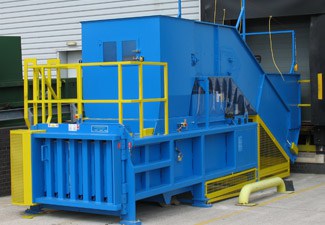
A development of the companys ME70, the new ME80 baler has been redesigned to provide a more refined and versatile entry level solution, capable of handling a wide range of waste materials. These include paper and card, steel and aluminium cans, PET bottles, HDPE, plastic film and shredded security paper. The new machine produces mill size bales with a throughput of three to four bales, or approximately two tonnes per hour, depending on material and feed method used.
Designed and manufactured in the UK, the ME80 will be available in two versions, a standard machine or the ME80F with a longer body and hopper feed. Both versions deliver an 80 tonne press force, incorporating hydraulic cylinders fabricated in-house and use energy efficient 22kW motors. It can be customised with a range of integrated sorting and conveyor options.
Mark Smith, Middleton Engineering technical director explained: For a wide range of organisations recycling is crucial, but waste volumes do not justify a fully automatic and more costly baling solution. As an entry level machine the ME80 will produce highly compact mill size bales, for example 600kg for card, which in turn will significantly reduce the costs of transporting loose recyclable materials – all from a machine with a footprint measuring just under five by two metres.
Terex Finlay launches new heavy duty screener
International manufacturer Terex Finlay has launched the 893 tracked mobile heavy duty screener designed for use with construction and demolition debris, topsoil, recycling and aggregate applications.
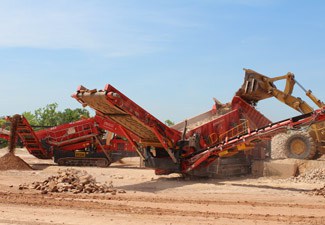
This aggressive forward facing inclined modular configuration screenbox has a 6.1m x 1.83m (20 x 6) top deck and a 5.5m x 1.83m (18 x 6) bottom deck. It has heavy duty crawler tracks and an optional radio remote control unit, designed to make on-site mobility easier. Depending on the working application of the machine hydraulic adjustment can be used to vary the working range angle of the screen box between 14 18. The screenbox top deck can be fitted with a variety of screening media including: mesh, punch plate, bofor bars and tines. The bottom deck can be fitted with mesh, punch plate and cascade fingers.
The plant has the capacity to process at a rate of up to 800 tonnes per hour and can be fed either by a tracked mobile crusher or an excavator.
The machine is powered by either a Tier 3 / Stage 3A Caterpillar C6.6 151kW (202hp) or a Tier 4i Caterpillar C4.4 129kW (173hp) and is equipped with three hydraulically folding discharge conveyors allowing for maximum stockpiling capacity and associated benefits of rapid set up and tear down times.
Nihot unveils updated i-Series
Amsterdam-based Nihot Recycling Technology has announced an update to its single drum separator product line in the form of the i-Series.
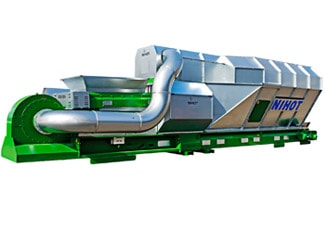
The i-Series will initially be available in two sizes the SDS 650-i and SDS 800-I both are self-contained, plug and play units that use negative pressure to separate materials based on density and shape. They can be used in a number of applications including construction and demolition, single stream glass clean up, municipal solid waste, commercial and industrial waste and compost, among others.
According to Nihot the SDS i-Series features a number of improvements on previous models, most notably improved separation and adjustability. Other improvements include a longer expansion chamber and blow-nozzle for more consistent separation and adjustability, more robust components in a modular design, integrated return ducting and dust collection and an improved look and feel.
Commenting on the updated line Nihots sales manager Joep Barenbrug said: Whereas the previous model required some labor to adjust settings, operators can now make adjustments easily and while in operation. The i-Series features a self-supporting frame and in-line design that enables it to fit in a single shipping container. It will show up fully assembled and ready to perform at a high level.
Advetec announces industrial scale Bio-Thermic Digester
Advetec, a UK specialist in the use of advanced technologies for the treatment of solid and liquid organic waste, has launched an industrial scale Bio-Thermic Digester (BTD), designed to rapidly process and significantly reduce high volumes of municipal waste.
The Bath-based firm said the Bio-Thermic Digesters unique design and size can turn tonnes of municipal commingled waste, food and industrial liquid waste quickly into distilled water and a dry powdery by-product, to be sold as refuse derived fuel. The containerised solution is capable of converting 33 tonnes of organic waste material over a 48 to 72 hour period, reducing the volume by over 97%.
Advetec chief executive Craig Shaw said: With our new industrial sized Bio-Thermic Digesters we can truly make zero organic waste to landfill a reality. We can turn commingled waste and anaerobic digestate into a valuable resource. Since our digesters require little electricity to run, on site processing costs are around 1.99 per tonne. But I believe the savings on vehicle movements alone will be highly significant for the industry.
Since this technology is completely scalable, banks of digesters can be linked to handle ever increasing volumes of waste, or each digester can be moved from site to site.
Landia pumps installed at GwyriAD AD plant
Landias piped digester mixing system that utilises pumps is helping organics recycler Biogen to process food waste at its new 5 anaerobic digestion plant near Caernarfon in north Wales.
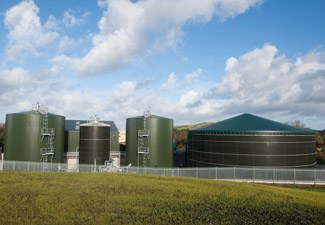
The 11,000 tonnes per annum plant, which was opened in November 2013 (see letsrecycle.com story) includes a Landia MPTK chopper pump that mixes 12% dry solids in a buffer tank. A further two MPTKs re-suspend grit (when existing diffusers are not running) by using a pressurised ring main with four jetting nozzles, equally spaced around the base of a tank containing 9% solid digestate.
At a maximum particle size of 12mm (temperature 60C), digestate at dry solids 8% is also pumped by two more Landia MPTK chopper pumps at a flow rate of 36-72m/hour. The system at the Biogen-owned plant further includes a 4.0kW 1500rpm DG Landia pump to transfer digestate at dry solids 15% at a flow rate of 20m/hour.
Biogens Julian Stelmasiak commented: Landias chopper pumps play an important part in the process, proving very capable of handling the different cycles of food waste.
Landia UK, which is celebrating its 20th anniversary in 2014, also has its pumps and mixers in operation at Biogens Milton Ernest plant in Bedfordshire, where renewable energy is generated from pig slurry and food waste.






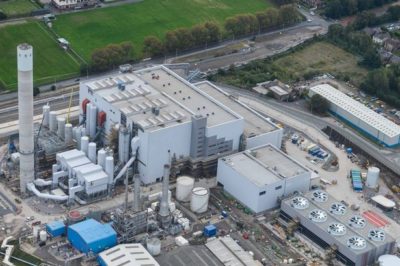
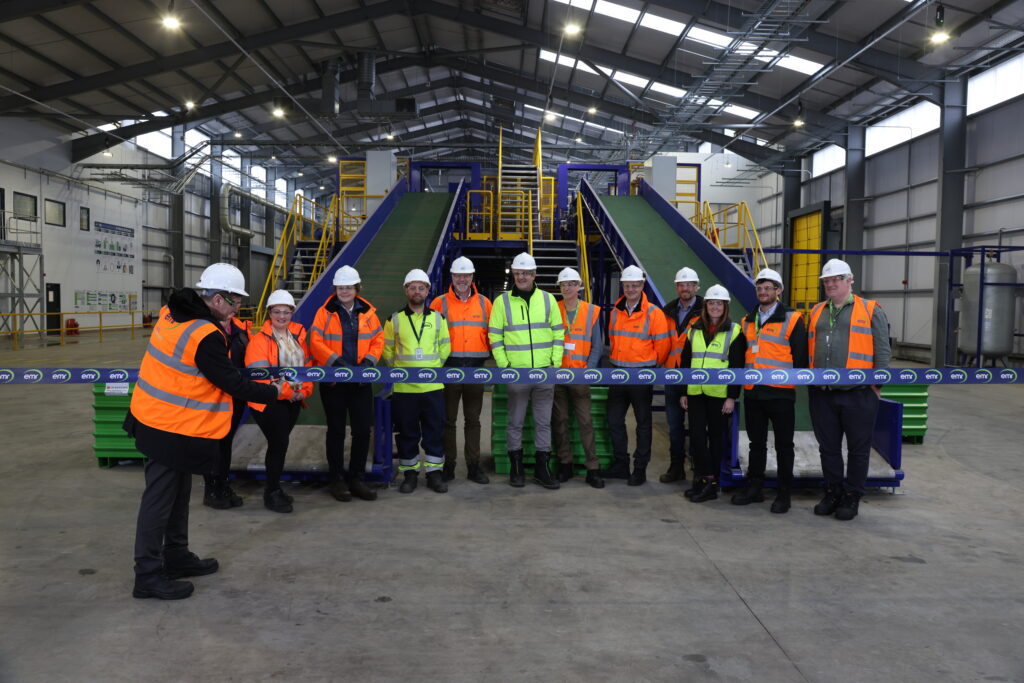


Subscribe for free